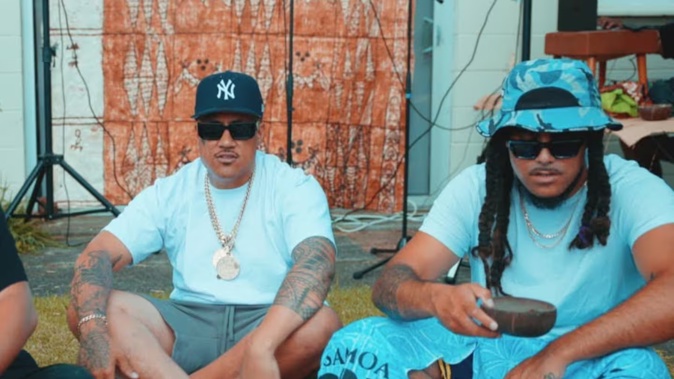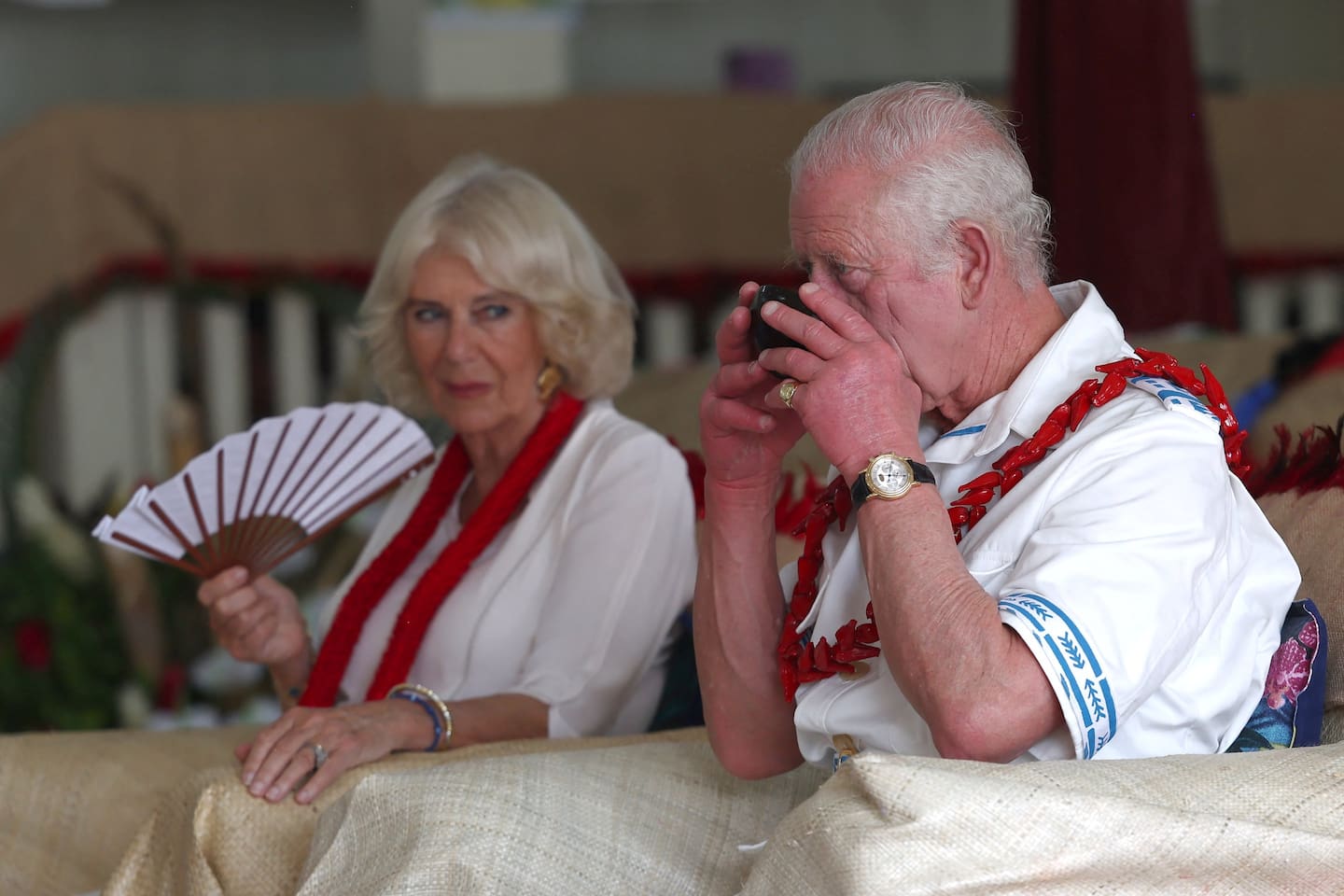
It is thousands of years old, woven through cultures across the Pacific and such an integral part of human migration that its DNA can be tracked right across the ocean from motu to motu, from vaka to waka.
But right now, kava is having a moment.
The drink, made from the roots of the Piper methysticum plant, has a long history of use in the Pacific, and differing kava cultures can be found across islands in Polynesia, Melanesia and Micronesia.
The drink has been growing in popularity across New Zealand in recent years and is increasingly consumed in non-traditional settings.
A reclamation by young tangata moana and a surge of interest from others means that you can order your kava online, get it on UberEATS or even find it in a vending machine.
But as it expands to the point where Americans are growing it in the continental US, Pacific youth are celebrating it in song and going viral.
Samoan/Māori artist MELODOWNZ is no stranger to bringing kava into the mainstream, previously hosting celebrities, politicians and sports stars on his Kava Corner talk show.
Now, alongside Revus, he has released a paean to kava, Kavafied, and told the Herald the drink helps him connect and create.
“I got into kava through my time spent in Vanuatu. They drink it more recreationally there compared to my Samoan culture, where it’s more used for ceremonial and more traditional purposes,” he said, revealing that it occasionally helps him in the music-making process.
“Every now and then I’ll mix at the studio and make songs,” he said, noting wryly: “Just as long as my raps aren’t fast.”
He said Kavafied got its start while he was drinking at Four Shells Kava Lounge, a modern kava lounge in Auckland’s CBD.
“It was an organic process, my bro was playing gat at the kava lounge one night and I started freestyling the chorus, next minute we got a song.”
The guitar-driven song features the hand claps that often accompany kava and sees Revus and MELODOWNZ singing the praises of the root.
Faikava (literally “to do kava” in Tongan) is often a musical space and another Four Shells regular, singer Sammy V, went viral recently for his honeyed rendition of faikava classic Smoke Your Cigarette.
MELODOWNZ is Samoan/Māori and Sammy V traces his roots back to the Cook Islands.
Kava’s use is largely ceremonial in Samoa. Aotearoa’s climate did not allow early Māori to grow it and missionaries removed nearly all kava use from the Cook Islands – so what does the growing popularity of kava among tangata moana from across the Pacific say about the drink?
“Kava or ‘ava is part of all Pacific cultures, and has been used by our people and ancestors for time,” MELODOWNZ told the Herald.
“Living in the city being able to connect through kava with friends and other Polynesians also makes me proud of still being able to practise such an ancient tradition in these modern times.”
MELODOWNZ included journalist Patrick Gower, no stranger to virality himself, in the run-up to the song‘s release and Gower professed the drink was “bloody awesome”.
But when it comes to kava on TikTok, one sound currently reigns supreme.
Tongan remixes have a habit of becoming earworms and the latest, set to the Vengaboyz song Shalala Lala, has taken over on TikTok.
The song, I want to faikava, has inspired a dance and a flood of videos from Pacific peoples across the world.
Others have embraced the trend and the dance, with many non-Pacific commenters suggesting they are keen to try kava for the first time.
The comment section in this video saw some desperate to allow the dance, with some stating that one of the dancers “has Tongan eyes”.
“Dox, what are Tongan eyes?” another replied.
‘We’re direct descendants’
So, is this increasing embrace of kava from outside its traditional base a good thing?
Speaking from a Tongan perspective, researcher Kava’onau ‘o Tapululululu Caroline Fanamanu told the Herald her generation had not always passed on the importance of cultural traditions in the waves of migration from the Pacific in the second half of the 20th century.
“What we haven’t done very well is that we’ve left a lot of grey areas for our children and we’ve decided ‘drop this’ or ‘we’ll only do this in Tonga’”.
She said that had led to some children of those migrations growing up without kava being a “way of life”.
“We took on this Aotearoa New Zealand culture so we could survive in it,” Kava’onau said, noting that many migrants did not always appreciate the importance of kava until others began to appreciate and exploit it.
She said kava was a commodity in Tonga but also a way of living, and its commercialisation on a global stage had highlighted its importance.
“You know, we’re looking ‘oh, what are these Palangis doing with our kava?’”

Britain's King Charles III drinks 'ava in Samoa. Photo / Pool
Noting how kava’s commercialisation and gradual global growth had quickened recently, Kava’onau noted: “We’re living in separate kava worlds with very little understanding of each other.”
She told the Herald that, as businesses pop up here and overseas that were operated by non-Pacific peoples, “we need to be careful that the traditional culture goes alongside these trends so that people know what actual kava is”.
But alongside that plea for kava not to be divorced from its cultural origins, she warned that culture can’t just be tacked on to help sell a product.
She told the Herald that, without talanoa, the open and respectful dialogue that accompanies kava drinking, kava becomes just a drink.
“Just drink it, don’t go through the theatrical clapping and that sort of stuff because it looks out of place.”
‘They’re going to be the holders of it in the future’
Kava’onau said the scene portrayed in the video for Kavafied was a good example of an emerging kava culture in Aotearoa.
“That’s what we do in New Zealand,” she said, adding that it was distinct from a “disappearing” traditional Tongan way of families drinking kava together in the home with a patriarch or matriarch officiating the kava.
“Still very informal, but it’s still got the hierarchy essence ... so it’s used for checking in, to give information.
“It’s a session where it could be providing a resolution to something that happened, but many of us have discontinued that practice.”

The Kavafied video showcases an emerging kava culture in Aotearoa, Kava’onau ‘o Tapululululu Caroline Fanamanu told the Herald. Photo / MELODOWNZ
Kava’onau said the younger generation had missed out on some elements of cultural transference and were now creating their own positive ways of using kava.
She suggested those generations should seek to absorb some of what might not have been passed on, and their elders needed to enter into that dialogue.
“The most important thing is that we go in and reconnect with our younger generation ... let them know it’s okay, they can have kava a certain way.
“They’re going to be the holders of it in the future.
“Times are not changing, they have changed.”
Chris Marriner is an Auckland-based journalist covering trending news and social media. He joined the Herald in 2003 and previously worked in the Herald’s visual team.
Take your Radio, Podcasts and Music with you









